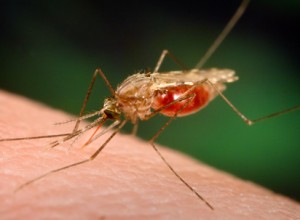Antimalarial herbal medicine completely clears malaria parasite – Dr Tetteh
 Dr Michael Tetteh, the Head of the Herbal Unit at the Tema General Hospital, has stated that some biochemical and clinical studies have proven the potency of anti-malarial herbal medicine in clearing the parasite at any stage.
Dr Michael Tetteh, the Head of the Herbal Unit at the Tema General Hospital, has stated that some biochemical and clinical studies have proven the potency of anti-malarial herbal medicine in clearing the parasite at any stage.
He said the main chemical compound, artemisinin, and its derivatives found in conventional plants were extracts from the plant “Artemisia annua”.
Dr Tetteh added that similar compounds were found in some other plants, like cryptolepine, which was from Cryptolepis sanguinlenta, a neem plant, and which was used in the production of most herbal antimalaria medicines in Ghana.
Dr Tetteh, who is a Herbal Physician, was speaking on the Ghana News Agency weekly health advocacy platform, an initiative of the Tema Regional Office, dubbed: “Your Health! Our Collective Responsibility!”
He however indicated that such an assertion could not be generalised to all herbal medications as those certified could treat malaria just like conventional medicines.
He, therefore, debunked assertions that herbal medications do not cure malaria.
Dr Tetteh reiterated that Ghana was a pacesetter in professional herbal medicine within the primary health care delivery system, stressing that even though several African countries made use of herbal medication, it was Ghana that commenced the professional use of herbal medicine for healing diseases.
He stated that Nigeria, which made use of traditional medicine, is “now starting the professional use of traditional medicine.”
He disclosed that Ghana had started piloting the integration of herbal medicine practice into mainstream health care.
Dr Tetteh said the piloting started with 19 units across the country, which had now grown to 55 units in public secondary health institutions, including Tema General Hospital.
He said Ashanti Region had 10, Greater Accra Region nine, Eastern Region seven, Central Region five, and Volta and Western Regions had four facilities each of the Ministry of Health and Ghana Health Service recommended Herbal Units in mainstream hospitals.
Others are: Northern, Savannah, and Upper East Regions had three units each, while Oti, Western North, Ahafo, Bono, Bono East, Upper West, and North East Regions had one unit each.
He said the units were being run by well-qualified medics who had the requisite training to consult on illnesses, adding that the only difference in care had to do with them using Food and Drugs Authority (FDA)-certified herbal medications for the treatment.
He gave the assurance that, apart from emergency and surgical care, the herbal units had medications for all kinds of diseases, such as internal medical issues, gynaecological, neurological, infections, hypertension, and diabetes, among others.
Dr Tetteh advised herbal medicine lovers not to experiment with unregulated medications when sick but rather visit their facilities to get proper care for all their illnesses.
Source: GNA
